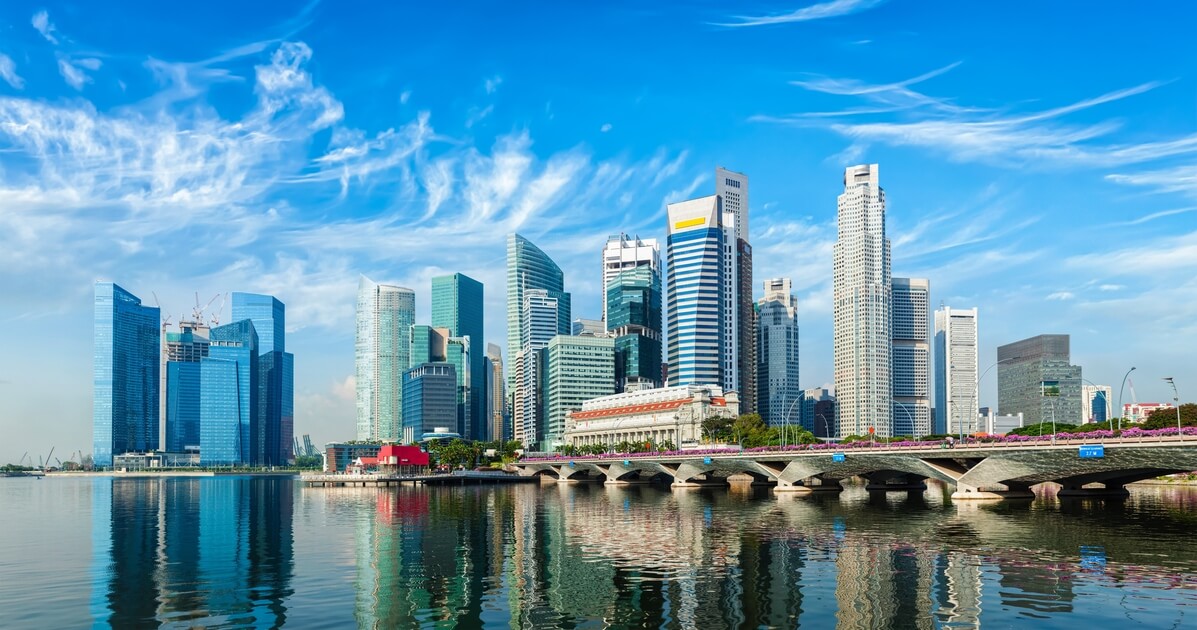Corporate account meaning: A guide for Singapore businesses
Learn what a corporate bank account is. Why it’s essential for separating your business finances from personal. How to open one in Singapore. Read here!

With its pro-business environment, strong legal system, and strategic location, Singapore remains a leading destination for property investors. Following the April 2023 hike in Additional Buyer’s Stamp Duty (ABSD)¹, which doubled the rate for foreigners buying residential properties to 60%², many investors have shifted their focus to commercial real estate, which is exempt from ABSD and offers attractive opportunities for diversification and steady rental income.
For investors managing international funds or renting to foreign tenants, efficient payment methods and proper financial separation are essential. A Wise Business account lets you receive rent payments from multinational tenants in their preferred currencies. You can also hold rent in the original currency and exchange at favourable rates later, reducing any potential foreign exchange losses.
Note: This publication is provided for general information purposes and does not constitute legal, tax, property, or other professional advice from Wise Payments Limited, its subsidiaries or affiliates, and it is not intended as a substitute for obtaining business advice from a real estate advisor or any other professional.
| Table of contents |
|---|
In Singapore, the Urban Redevelopment Authority (URA) determines whether a plot of land is designated for residential, commercial, industrial, or mixed use. These classifications determine the activities permitted on each site and the applicable ownership rules and are reflected in the Master Plan³.
Commercial property refers to land or buildings used mainly for business purposes, such as offices, shops, hotels, or industrial spaces, to generate profit through rental income or capital gains.
Mixed-use developments that combine both residential and commercial elements are also common across Singapore. However, when a property falls primarily under residential zoning, it will be subject to stricter ownership regulations, particularly for foreign investors⁴.
In Singapore, commercial properties generally fall into three main categories: retail, industrial and commercial, and hotel⁵. Each serves different business functions and offers varying levels of risk, return, and management requirements.
Retail properties include shopping malls, restaurants, bars, gyms, and shophouses. These spaces cater to consumer-facing businesses and are often located in high-traffic areas. Shophouses, in particular, are highly sought after due to their limited supply and conservation status, which preserve their unique architectural character and heritage appeal. Their scarcity and prime locations make them one of the most prized forms of commercial real estate.
Industrial and commercial properties are typically used for offices, production, or logistics activities. They are classified into two main types:
Hotel properties encompass hotels, hostels, and serviced apartments. These assets serve the tourism and hospitality sectors and can generate consistent income through daily room rates, making them attractive to investors looking for long-term returns in Singapore’s strong travel market.
Singapore’s property market is one of the most open in Asia when it comes to foreign investment. Generally, foreigners enjoy the same ownership rights as locals for commercial property purchases, making it an attractive option for international investors seeking stable returns.
Foreign buyers can freely purchase most types of commercial property⁴. This includes shophouses for commercial use, industrial and commercial buildings, and hotels registered under the Hotels Act.
However, restrictions apply to properties that are zoned for residential and mixed use. In such cases, foreign investors may need to obtain prior government approval before proceeding with the purchase. It’s therefore important to confirm the zoning classification with the URA before committing to any transaction.


| 💡Need to pay or get paid in foreign currencies? Wise Business could be a better alternative business account as you can hold, send, receive and exchange 40+ currencies all in one place. You’ll always get the mid-market rate with low, transparent fees. Even better, you can connect Wise Business cards to your account to control team spending in real time and reduce admin. |
|---|
➡️Get started with Wise Business today
Before investing in a commercial property, it’s important to understand the stamp duties and taxes involved, as they will directly affect your overall return on investment. Here is a quick overview:
Financing a commercial property in Singapore differs from buying a residential one, as the regulations and eligibility criteria are more stringent. Here are the key points to note before securing a loan:
Additional costs of purchasing commercial properties in Singapore
Beyond the purchase price and taxes, buying commercial properties in Singapore comes with additional costs that investors should plan for:
On top of the financial considerations, you should also note the following non-financial factors that could impact the returns from your commercial property:
Wondering how you can buy commercial property in Singapore? Below, we give you some top tips to make this process easier for you and help you find your ideal property fast.
Here are the three main steps to follow to access listings on commercial properties that are up for sale.
So what is the overall process from finding your ideal property to acquiring it? Here is what you should expect from start to finish:
Buying a commercial property in Singapore offers investors a chance to tap into one of Asia’s most stable and business-friendly markets. From understanding property types and ownership rules to managing taxes, financing, and due diligence, a well-planned approach helps you maximise long-term returns while minimising risks.
Using a dedicated business account also ensures compliance with Singapore’s tax and accounting regulations by keeping your property income and expenses separate from personal funds, giving you clarity and peace of mind as your portfolio grows.
For foreign investors, handling large cross-border payments quickly, securely, and at low cost is crucial. With a Wise Business account, you can send high-value overseas payments at the mid-market rate with volume discounts for larger amounts. You can also receive and hold rental income in its original currency, helping you manage global finances efficiently, while avoiding unnecessary foreign currency conversion fees.
➡️Learn more about Wise Business today!
Sources:
Sources checked on: 26 Oct 2025
*Please see terms of use and product availability for your region or visit Wise fees and pricing for the most up to date pricing and fee information.
This publication is provided for general information purposes and does not constitute legal, tax or other professional advice from Wise Payments Limited or its subsidiaries and its affiliates, and it is not intended as a substitute for obtaining advice from a financial advisor or any other professional.
We make no representations, warranties or guarantees, whether expressed or implied, that the content in the publication is accurate, complete or up to date.

Learn what a corporate bank account is. Why it’s essential for separating your business finances from personal. How to open one in Singapore. Read here!

Is public liability insurance mandatory in Singapore? Learn what it covers, why SMEs need it, and how to manage your business costs with Wise.

In-depth review of Statrys business account for Singapore, including features, pricing, and alternatives for SMEs with international transaction needs.

There are two ways to close a company in Singapore: strike off or wind down. This article guides you through both processes.

Learn how the WorldFirst Card helps Singapore businesses manage global payments, and simplify online spending.

Discover how Osome and Sleek differ in incorporation, accounting, and secretary support services, and which one is a better fit for your Singapore business.